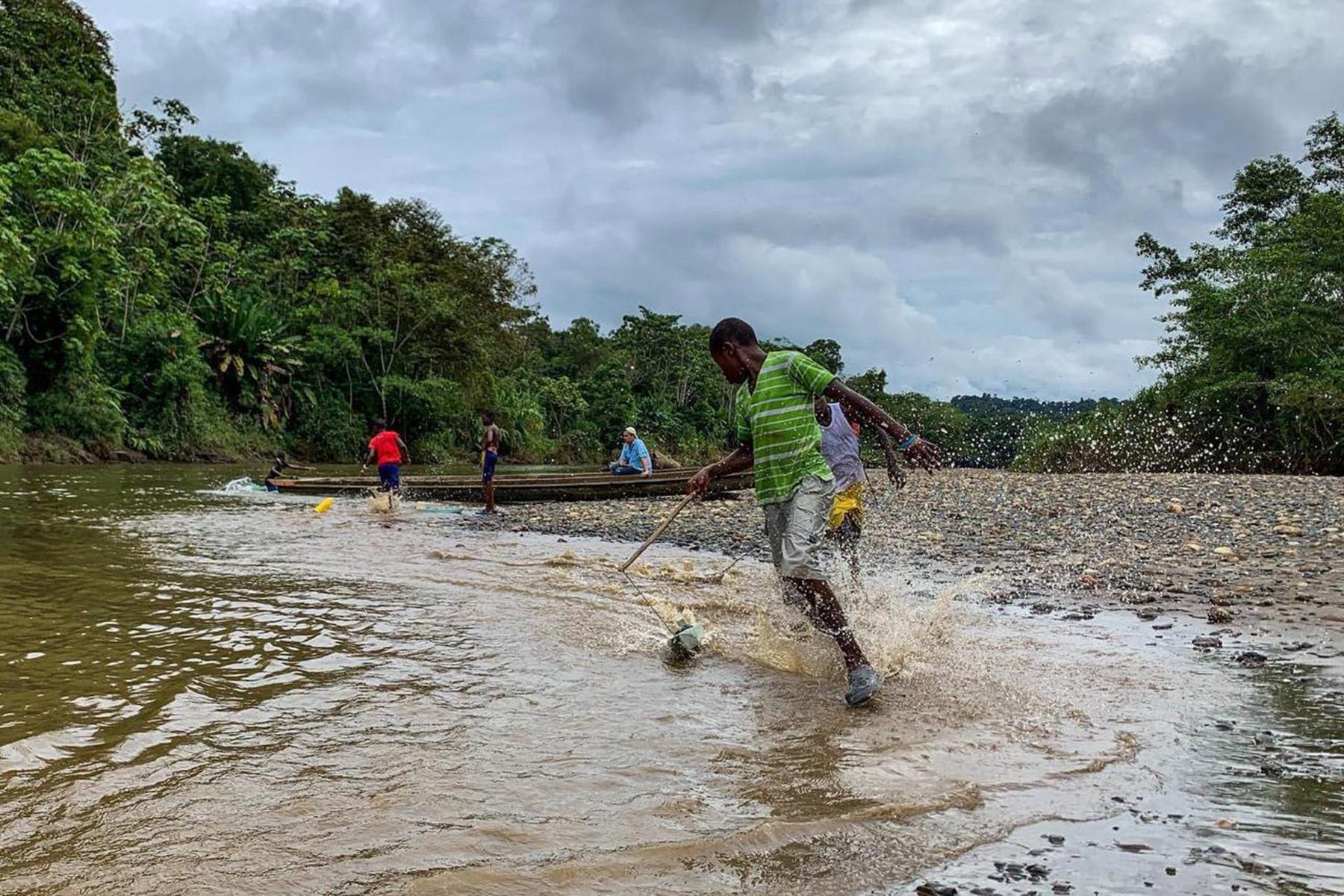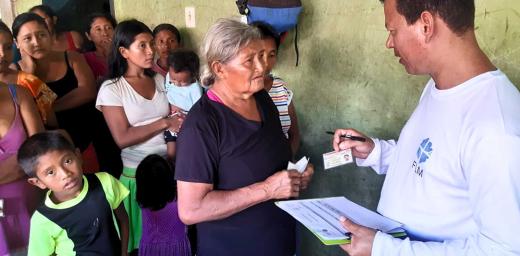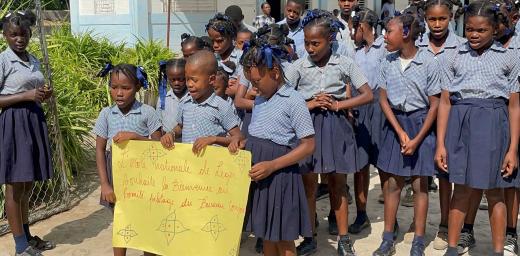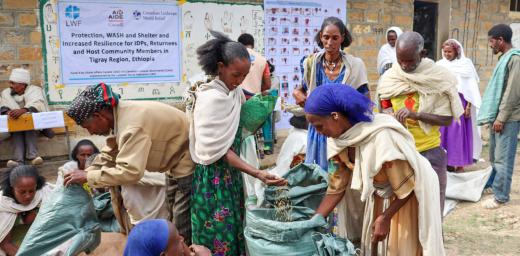Supporting marginalized people to organize and empower themselves

Youth playing on the banks of RÃo Pogue in Atrato, northwestern Colombia. The LWF supports local communities to uphold their rights and protect the Atrato River, which has been polluted by material from extractive industries for decades. Photo: LWF/G. A. Moreno Clavijo
Report on LWF’s rights-based approach work in 2020
(LWI) – Through its local-to-global methodology, The Lutheran World Federation (LWF) continues to work with refugees, internally displaced people, indigenous communities, ethnic minorities and other marginalized groups to access justice, the right to education, health and sustainable livelihoods.
The recently published Rights-Based Approach - Local to Global Annual Report 2020 features LWF’s engagement in 10 countries in Africa, Asia and Latin America. Case studies show how people and communities are determining their own future through skills provided by the LWF in collaboration with its international and local partners.
The rights-based approach (RBA) was particularly important during the COVID-19 pandemic. “The rights of the most vulnerable were acutely threatened, and it became more critical to focus on solutions that translate into real impact on the ground,” the introduction to the report states.
Myanmar, one of the countries featured in the report, has four LWF member churches and a country program run by its international humanitarian and development arm World Service. Despite the worrying socio-political context there and the COVID-19 restrictions, LWF supported advocacy for women’s rights, the right to land, and provision of identity documents for children from ethnic minorities. In Kayin and Rakhine states, for example, 99 households were able to register their land.
In Colombia, the LWF supported a commission of guardians, comprising Indigenous and Afro-Colombian communities, that was set up to safeguard the River Atrato and promote implementation of a historic court ruling recognizing the locals’ claim to the river as a source of food security and livelihoods.
In Chad, more than 330 households comprising refugees, returnees and host-communities who received parcels of land, seeds, tools and training on rain-fed agriculture, improved food production to cater for family needs and sell the surplus.
The report has several references to LWF’s engagement with the United Nations Human Rights Council through the Universal Periodic Review (UPR). Civil society organizations and faith-based actors contributed to UPR processes that addressed governments’ accountability for human rights violations in several countries. This includes proper housing and caste-based discrimination in Nepal, sexual and gender-based violence in South Sudan and refugee rights in Kenya.
By LWF/P. Mumia





